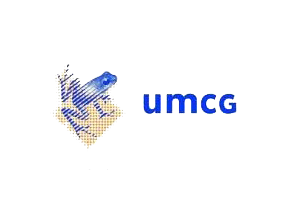Hekmat Alrouh: CID member and refugee
‘The red pencil I used to vote for the first time is still in my bag’
Text: Mieke Zijlmans
Photos: Hekmat Alrouh
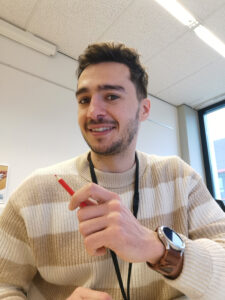 Pandemic
Pandemic
‘I study the influence of genetics on behaviour with data from the Netherlands Twin Register (NTR). I am currently studying how obesity is passed down between generations within one family, i.e., from parents to children. I am also researching whether obesity is related to people’s education. Earlier, I looked at the effect of the pandemic on obesity and child well-being. This includes psychological symptoms such as depression and anxiety, as well as their expression, including arguing and aggression.
During the pandemic, I did online research on the effect of the pandemic on children with psychiatric problems. In normal circumstances, you could never study something like that – you cannot put vulnerable children in isolation to see what it does to them. Because of the lockdown, we were now able to study this. And because NTR had been collecting data for decades before the pandemic, we are now also able to compare it with well-being during the pandemic and after.’
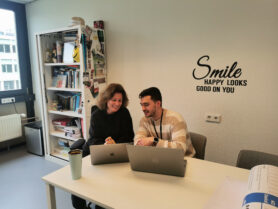 Political refugee
Political refugee
‘I came to the Netherlands as a political refugee in 2018, from Qatar. I was told to leave the country within ten days. If I did not go of my own accord, the police would put me on a plane to Syria, where I was born. Since I had been on holiday in the Netherlands a few times, I came here. I took a hotel room in Amsterdam, walked to a police station, and told them I wanted to apply for asylum. That is possible, the police said, you can apply in Ter Apel.
I ended up spending about ten days at the application centre. After that, I stayed in recreational park Duinrell and finally in Friesland. After seven months, my asylum application was approved. During that period, I took an intensive Dutch language course. Once I received my refugee status, I immediately applied to the VU Amsterdam. Fortunately, I was hired.’
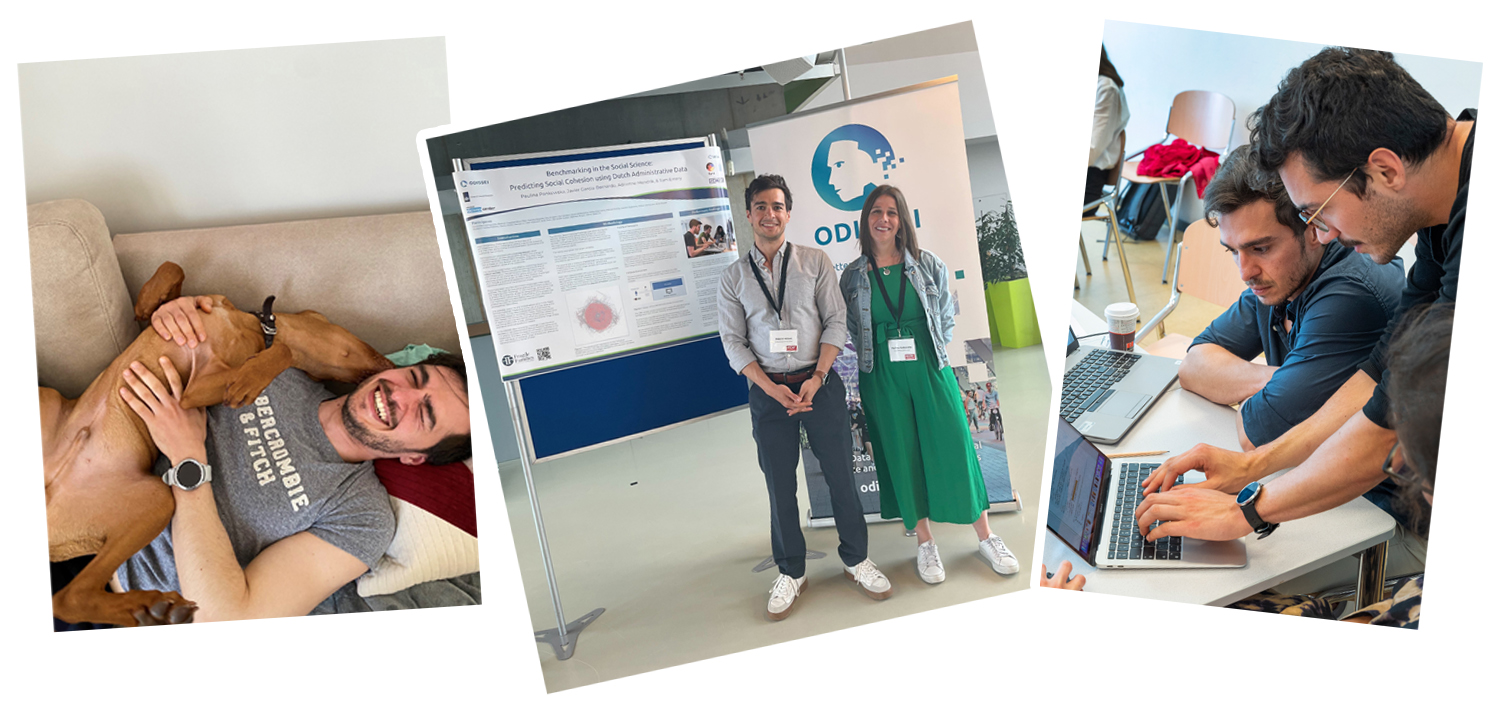
Passport
‘I have now settled down in Amsterdam. I live with my girlfriend in a small flat, with two cats and a dog. I don’t work on weekends. Cooking is my passion – I enjoy trying dishes from all cuisines from around the world.
I feel at home in the Netherlands, because I can be myself. I am allowed to speak my mind and I can do the work I want. At the end of 2023, I will have been in the Netherlands for five years, then I can apply for a passport. I only have a Syrian passport; in Qatar, I was given no more than a temporary residence permit. You will always remain a Syrian there, no matter how long you live there.
Last year, I voted for the first time in my life, in the Amsterdam municipal elections. That was an important moment for me. For the first time, my voice mattered. I kept the red pencil with which I was allowed to vote – it’s still in my bag.’
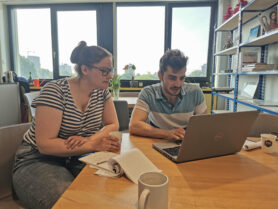 Enterprising
Enterprising
‘In February 2024, I hope to receive my PhD. I do not know yet what I will do after that. Maybe get a job as a postdoc at the university. But I might go off in a completely different direction.
What makes sense to me is allowing scientists to do research with information from companies like Google, Facebook, and Instagram. This information is currently not permitted by law to be used, for privacy reasons, but if the data is properly anonymised – and if individuals give their consent, of course – then you could use it for scientific research. It would be a huge source of information.
In addition to science, I have always been interested in entrepreneurship. It is fun to come up with practical solutions to social problems. For example, just after I came to the Netherlands, I set up a start-up called ‘CrowdMuse’ with two friends. The idea is to create an online system in which designers can develop promising fashion projects, which they then co-own. That is completely different from working for a boss from whom you receive a salary.’
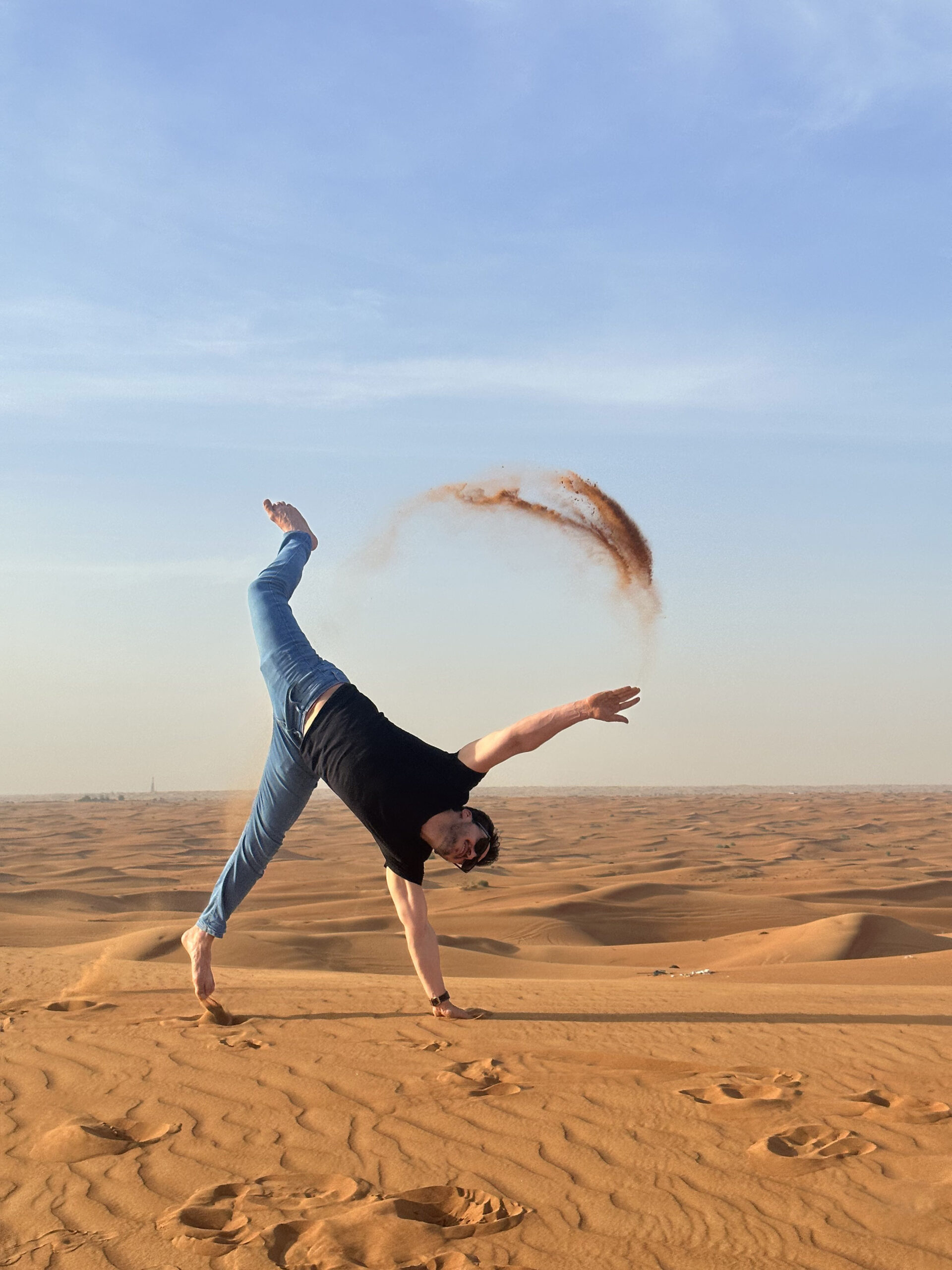
Physician-scientist Hekmat Alrouh (1986) was born in Syria and grew up in Dubai. He studied medicine in Qatar, but had to leave the country. He ended up in the Netherlands, where a grant allowed him to start as a researcher at VU University Amsterdam. Successfully so, as he is now doing his PhD research at the CID on the influence of genes and environment on health.
This article is part of a New Scientist special issue about the Consortium on Individual Development, that will appear in September 2023.
